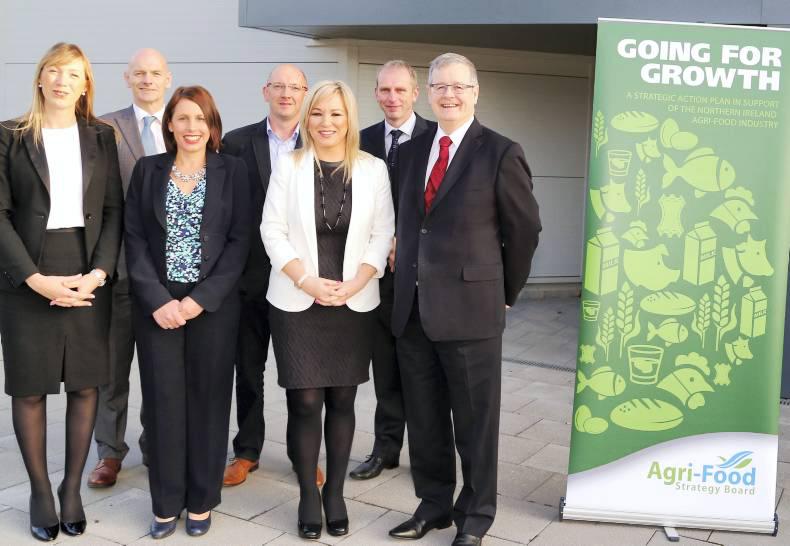A progress report on the Going for Growth strategy entitled “Delivering Growth” has been published by the Agri-Food Strategy Board (AFSB), which highlights a £1bn increase in turnover in the NI agri-food sector from 2010 to 2014.
The positive tone of the document, however, will be of little comfort to most NI farmers facing financial difficulties at present mainly due to global oversupply.
Acknowledging this in his foreword, AFSB chair Tony O’Neill said that although there is an extremely challenging environment for primary producers and the wider industry at present, the targets set in the Going for Growth report in April 2013 are still achievable.
The overall target for agri-food turnover is to increase it by 60% from 2010 levels to £7bn by 2020. All sub-sectors have reported increases in turnover up to 2014 (the most recent figures). The dairy sector has a target of increasing turnover by 65% to £1.45bn by 2020. By 2014, this had increased by 28% from 2010 levels to £1.12bn.
In the beef and sheep meat sub-sector, turnover rose by 32% to £1.28bn in 2014, with the target being 60% growth to £1.6bn by 2020. The arable, fruit and vegetables sub-sector reports a 30% increase in turnover to £287m, with the 2020 target being £390m.
For pigs and poultry (meat and eggs), turnover increased by 34% and 26% to £327m and £900m in 2014, respectively. The pig sector has a 48% turnover target of £360m and poultry is aiming for a 70% increase to £1.25bn.
Sales
The growth of external sales out of NI is a key focus of the Going for Growth report, with a 75% increase from 2010 levels to £4.5bn being the overall target. The latest figures from DARD (which don’t include animal feed) show that there was a 32% increase in external sales, to £3.42bn, in 2014.
Market access is highlighted as a key element to grow sales, with the progress report stating that 49 new markets have been secured, including Canada, Singapore, Thailand and India. However, Britain remains NI’s biggest customer responsible for 40% of total agri-food sales in 2014. The Republic of Ireland was responsible for 14% of sales, the rest of Europe and Russia 10% and sales in NI equated to 29% of the total.






 This is a subscriber-only article
This is a subscriber-only article










SHARING OPTIONS: